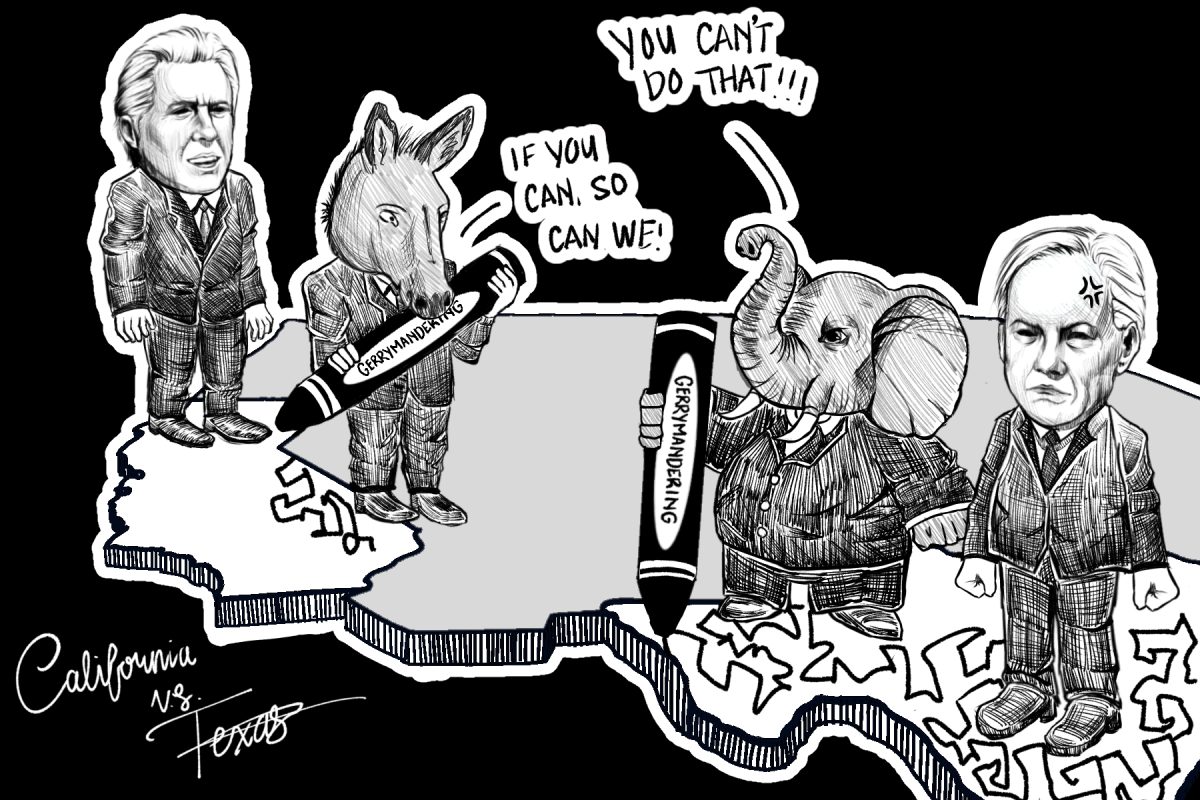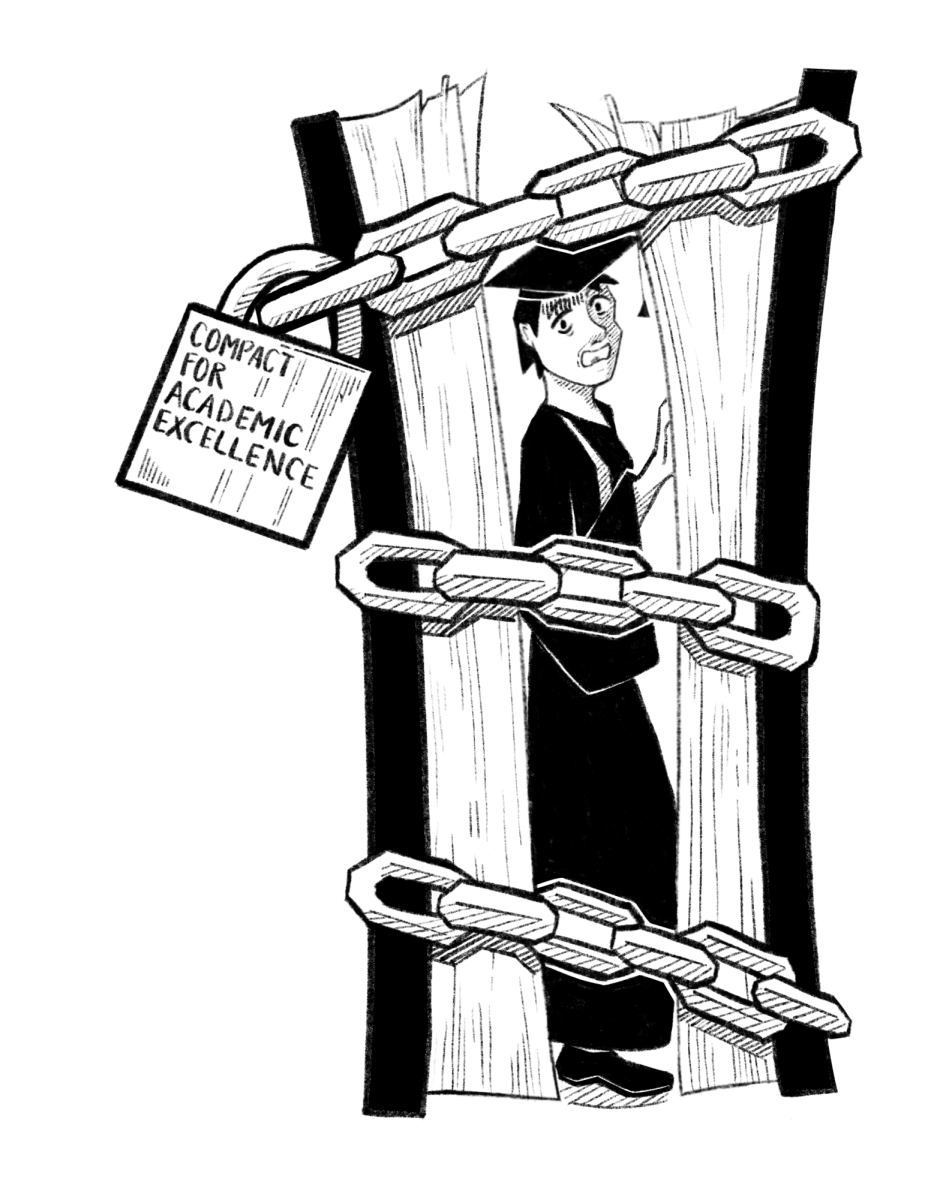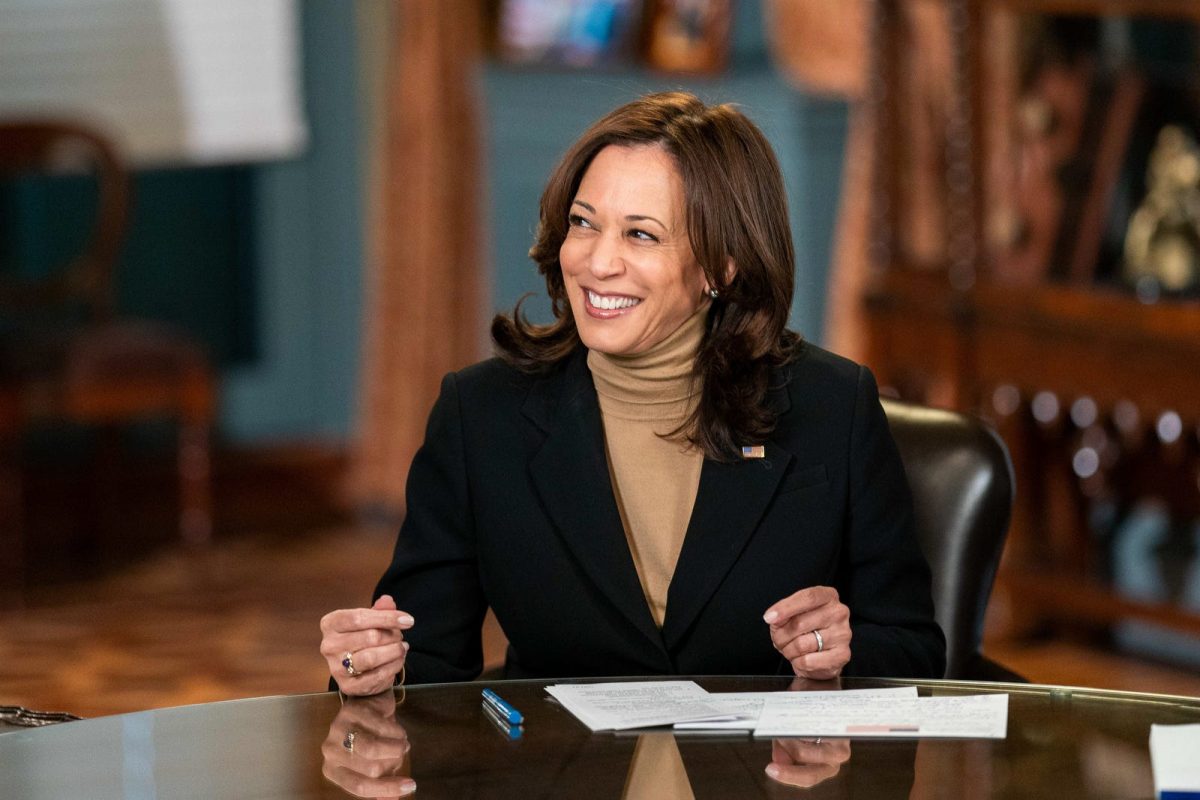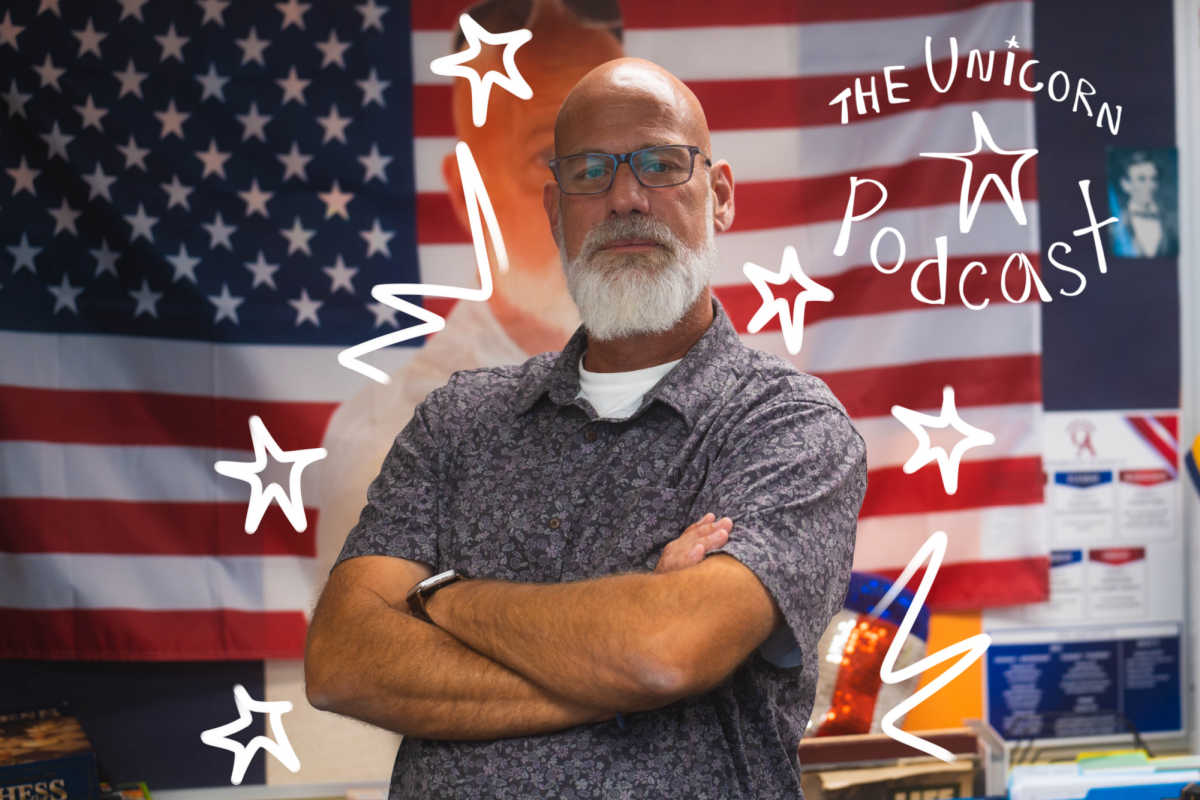In the current landscape of U.S. politics, Donald Trump stands as a figure of immense influence, infamy, and everything in between, from conservatism to far-right conspiracies. With the 2024 presidential election approaching in November, Trump’s presence in the American zeitgeist looms larger than ever.
Released on Oct. 11, “The Apprentice,” a biographical drama directed by Ali Abbasi and starring Sebastian Stan in the lead role, delves into Trump’s real estate beginnings in late 1970s New York, mentored by lawyer and broker Roy Cohn (Jeremy Strong). While the film balances a compelling, nuanced portrayal of Trump’s rise, it focuses more on critiquing the societal forces that enabled his and Cohn’s corruption rather than his inner psyche.
“The Apprentice” focuses on a younger, though still arrogant and obnoxious, Trump, driven by a singular desire to prove himself to his father. As the film progresses, Cohn’s influence molds Trump from a fresh-minded amateur to a ruthless operator, gradually instilling entitlement that hallmarks the “Trumpism” political philosophy. However, Cohn’s cutthroat direction and the corruption it represents aren’t merely depicted as Trump’s moral failings, but as part of the broader capitalist system that rewards such behaviors.
Stan’s performance plays an integral role in the film’s efforts to nuance the presidential candidate, from subtle, insecure pauses after unsuspected criticism to violent outbursts. As the movie progresses, Stan’s cadence and mannerisms grow more pronounced, transitioning between different variations of Trump — a gradual imitation of Cohn — until transforming into the loud, blustering man of today. Meanwhile, Strong’s chilling Cohn exudes ruthless charm and unwavering confidence, aggressively guiding Trump into the illegal corporate world.
The film grounds Trump in reality, stripping away his powerful, almost mystical presence to reveal a complex character. Abbasi refuses to idolize or vilify Trump, opting to humanize him to evoke reflection rather than empathy. As Abbasi told The Hollywood Reporter, “Humanizing someone does not exonerate them — quite the opposite, it implicates all of us.” By showing Trump’s ambitions as a product of society, Abbasi forces audiences to confront their role in the systems enabling such figures.
However, the heavy-handed emphasis on capitalism detracts from a deeper exploration of Trump’s personal development, leaving a distant persona of Trump behind in favor of societal critique. Although the biopic charts Trump’s life, it does so through a lens of corrupt distortion rather than his perspective, reducing him to a symbol of systemic failures. The film misses the opportunity to explore his ambitions and familial pressure further, hindering a deeper conversation about individual agency versus corrupt structures.
Despite missing an in-depth exploration of Trump as a person, “The Apprentice” is a worthwhile addition to political cinema with its complex portrayals and unflinching look at American systemic corruption.





































































